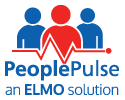Employee engagement is important for the success of any business – it is the way in which staff commit to your organisation or to someone in your organisation.
Key benefits you can gain from making improvements in this area include better retention rates and a better standard of work.
The commitment types boil down to two categories, with four focal points. Here is a brief explanation of these.
Rational commitment
This is the belief that employees hold surrounding the extent to which their managers, teams and overall organisation is working in their self-interest. This can refer to their financial, developmental or professional areas.
Emotional commitment
On the other hand, emotional commitment refers to the extent that employees value and enjoy their jobs, and the degree to which they believe in the organisation, their job, manager and team.
How can you measure this?
While it sometimes can be hard to get to grips with the morale of your staff and to calculate their engagement levels, there are a few signs to look for that should point you in the right direction.
These include the discretionary effort, or the employee's willingness to go above and beyond the call of duty by helping team members struggling with heavy workloads or volunteering for additional duties. People demonstrating this kind of effort may also be seeking out ways in which they can improve the way they do their jobs.
They may also indicate a desire or intent to stay within the corporation. It might be hard to tell if your staff have already begun the process of job hunting or whether they are at risk of leaving the company as they might not be forthcoming.
One way you could determine this is by doing an anonymous employee engagement survey. This could highlight any areas you could improve on.
Remember, for every 10 per cent that an employee's commitment increases, their effort levels rise 6 per cent.
And, every 6 per cent improvement in effort can increase performance by 2 per cent.
When was the last time you enquired about your employees' job satisfaction? Click here for a free custom-branded demonstration of PeoplePulse.


 Exceptional Survey. Solutions
Exceptional Survey. Solutions